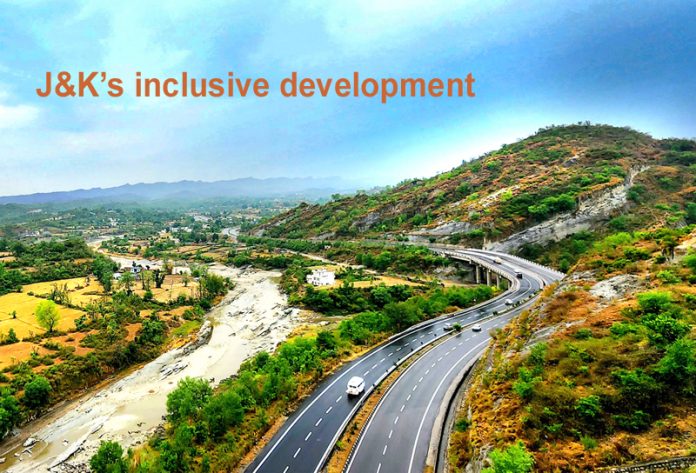In India’s socio-political dynamics, few regions carry as much weight and significance as Jammu and Kashmir. Historically marred by conflict and political turbulence, J&K has undergone a remarkable transformation in recent years, catalyzed by visionary leadership and decisive policy interventions. Lieutenant Governor Manoj Sinha’s address at the Business Conclave 2024, organized by Shri Ram College of Commerce in New Delhi, provides a poignant glimpse into the strides made by J&K since the abrogation of Article 370, as well as its promising trajectory for the future. His emphasis on the quiet but substantive transformation occurring across various sectors underscores a departure from the region’s tumultuous past towards a future defined by growth and prosperity.
Central to this discourse is the theme of inclusive development. The administration is committed to creating an enabling environment for all sections of society, including the marginalised, youth, women, and farmers. By prioritising people-centric governance and efficient public service delivery mechanisms, the administration aims to empower individuals and communities, thereby enhancing the overall quality of life. The emphasis is on the integration of grassroots perspectives into the formulation and implementation of policies, thereby ensuring that governance reflects the aspirations and needs of the common citizen. This bottom-up approach not only fosters greater accountability but also engenders a sense of ownership and stakeholding among the populace. Crucially, the administration’s efforts are focused on combating longstanding challenges such as corruption and terrorism. By creating a fear-free environment and prioritising security alongside development, J&K is poised to realise its full potential as a thriving socio-economic entity. The LG’s assertion of J&K’s emergence as a beacon of progress is underpinned by concrete actions aimed at fostering growth and stability.
One of the cornerstones of J&K’s transformation lies in its emphasis on connectivity, both digital and physical. The strides made in enhancing digital infrastructure and connectivity have facilitated greater access to information and opportunities, particularly for youth. Concurrently, investments in physical infrastructure, including the realisation of Smart City projects, have bolstered urban development and catalysed economic growth. The Government’s unwavering attention is directed towards the growth of industries, tourism, education, sports, agriculture, health, entrepreneurship, and handicrafts. Substantial strides have been made, as evidenced by the establishment of new industrial estates and record-breaking industrial investments pouring into the UT of Jammu and Kashmir following the abrogation of Article 370.
In the domains of health and education, the landscape has been dramatically altered with the establishment of prestigious institutions such as IIT, IIM, AIIMS, Central Universities, new GMCs, the State Cancer Institute, and degree colleges. The Khelo India initiative has injected renewed vigour into sports across the UT with the construction of new stadiums and sports infrastructure, resulting in the emergence of world and national champions. Agriculture has received special attention, with a focus on innovative methods and improved crops supported by readily available technical expertise, aiming to elevate the agricultural economy to national standards. The impending rail link and express corridor promise to revolutionise connectivity, providing a substantial boost to tourism, industries, and agriculture. Innovative tourism projects are underway to develop alternative tourist sites, thereby diversifying and increasing tourist footfalls. Additionally, the introduction of two Vande Bharat trains to Katra and ropeways at various tourist destinations further underscores the commitment to bolstering tourism. Efforts to position Kashmir as a premier winter sports destination are underway, while a significant emphasis on handicrafts has led to the attainment of GI tags for many artisanal products. Showcasing these crafts at dedicated Hatts and railway stations has proven to be a game-changer for local artisans and the handicraft industry as a whole.
The present regime’s focus is on concrete steps to ensure the equitable distribution of resources and the promotion of entrepreneurship and innovation. By prioritising inclusive development, participatory governance, and infrastructure investment, J&K is poised to chart a course towards a brighter, more prosperous future.
Trending Now
E-Paper


